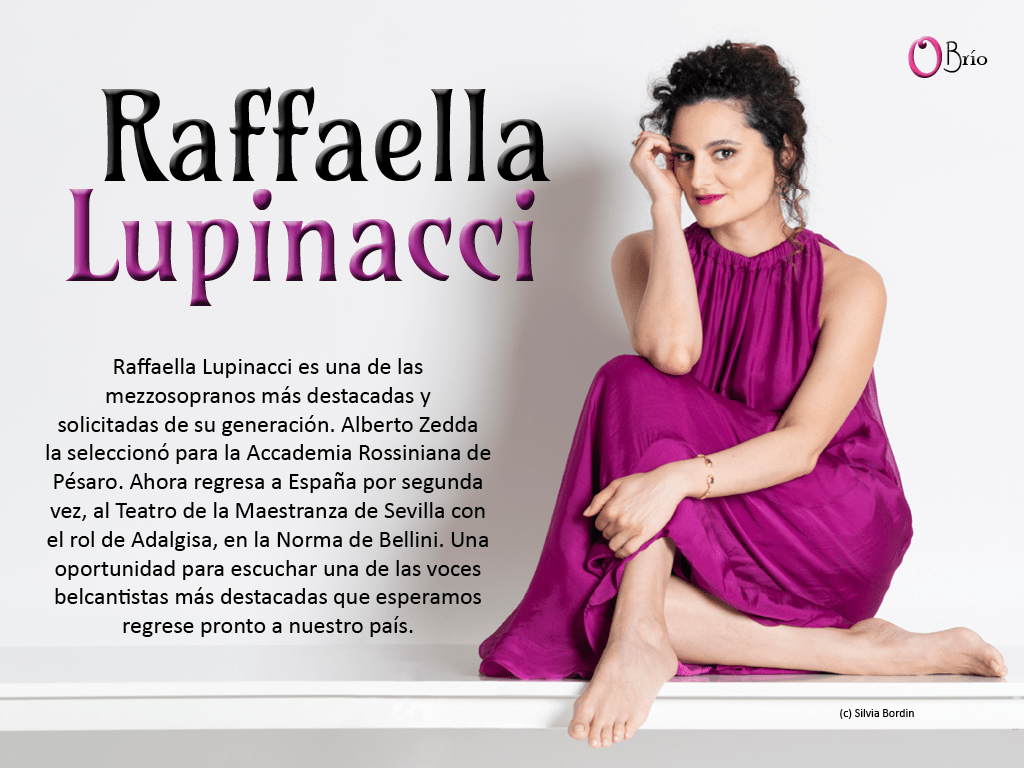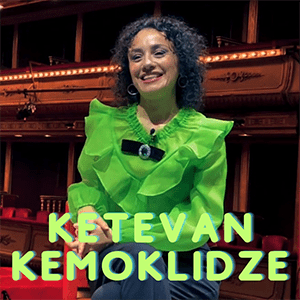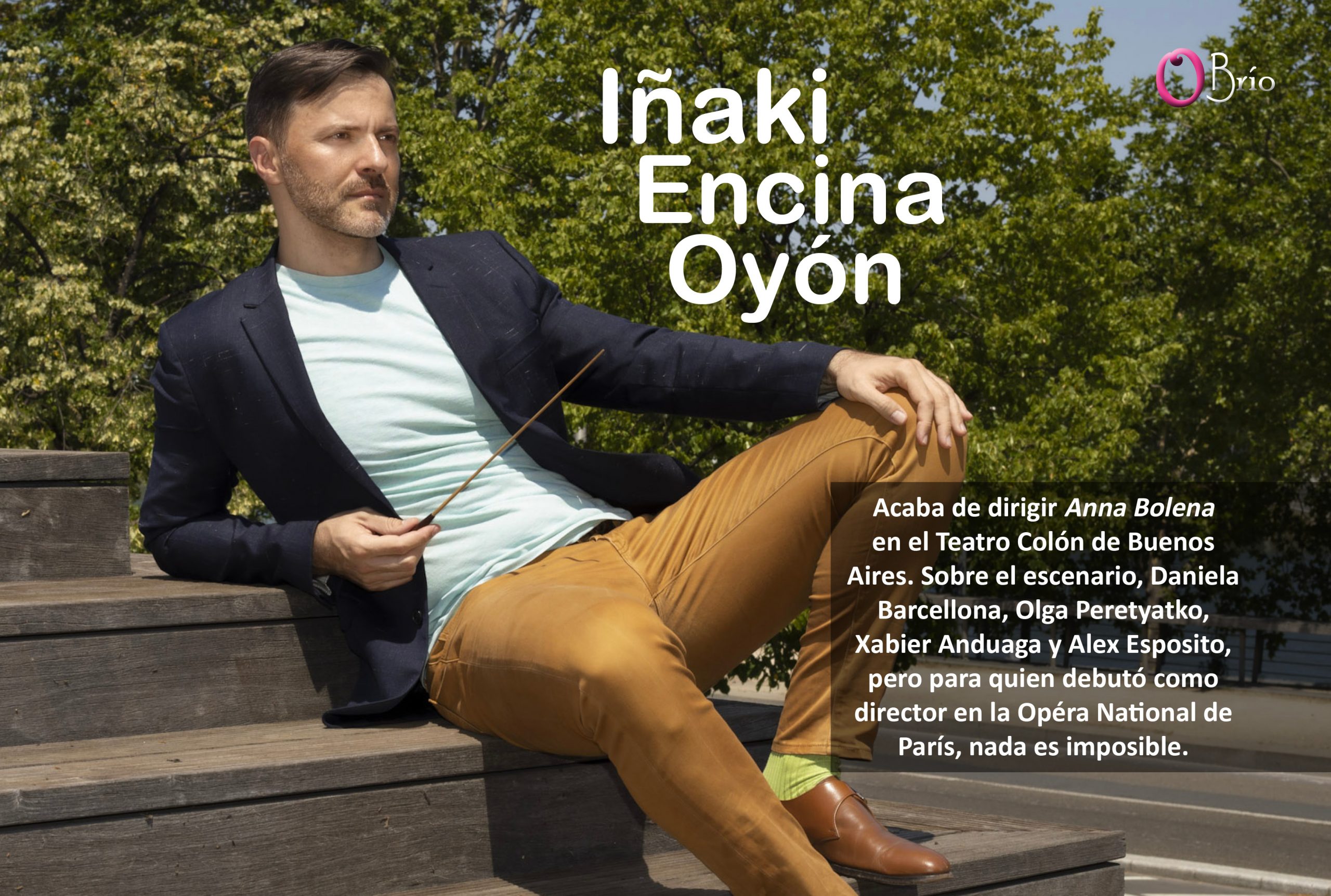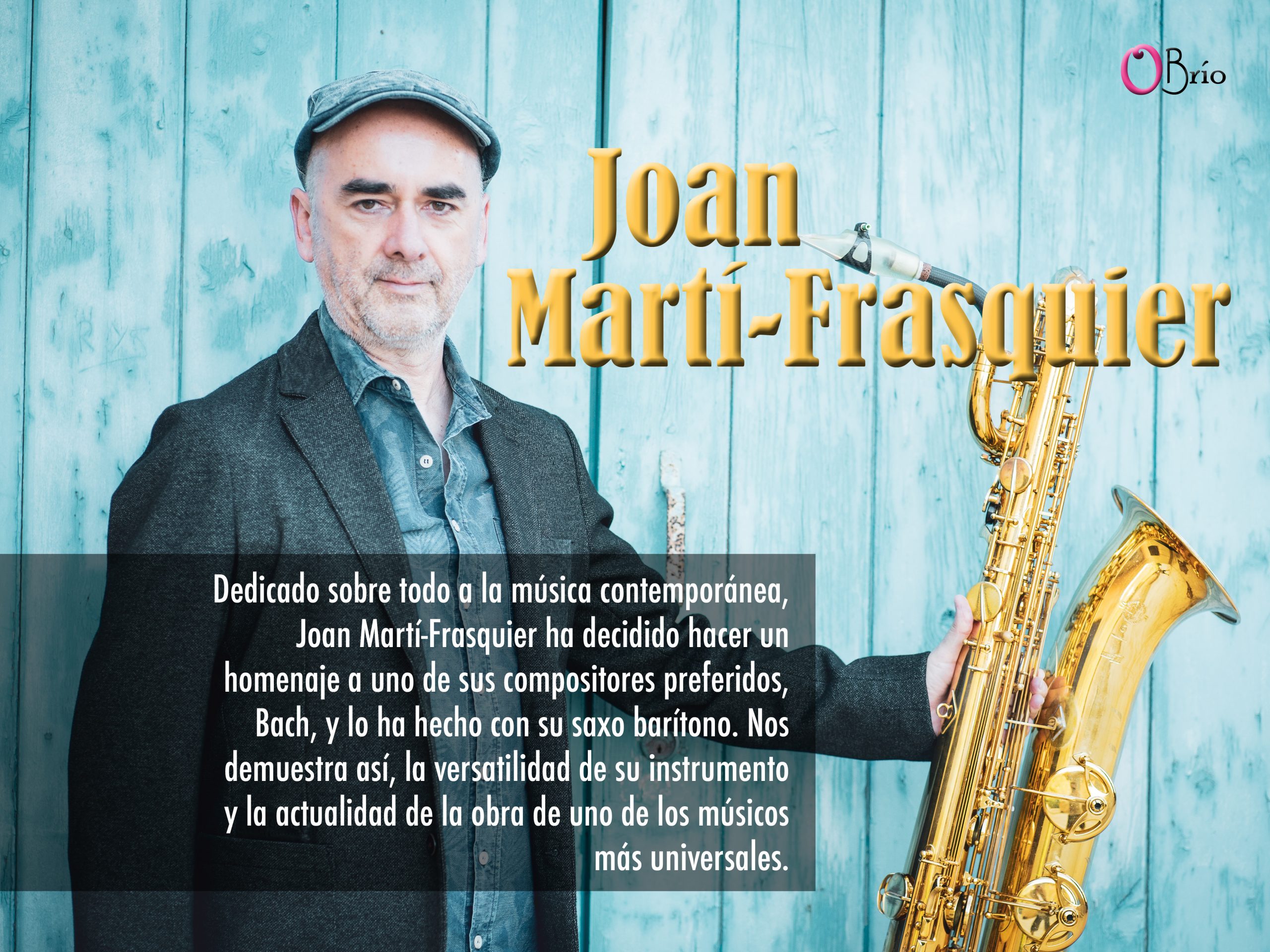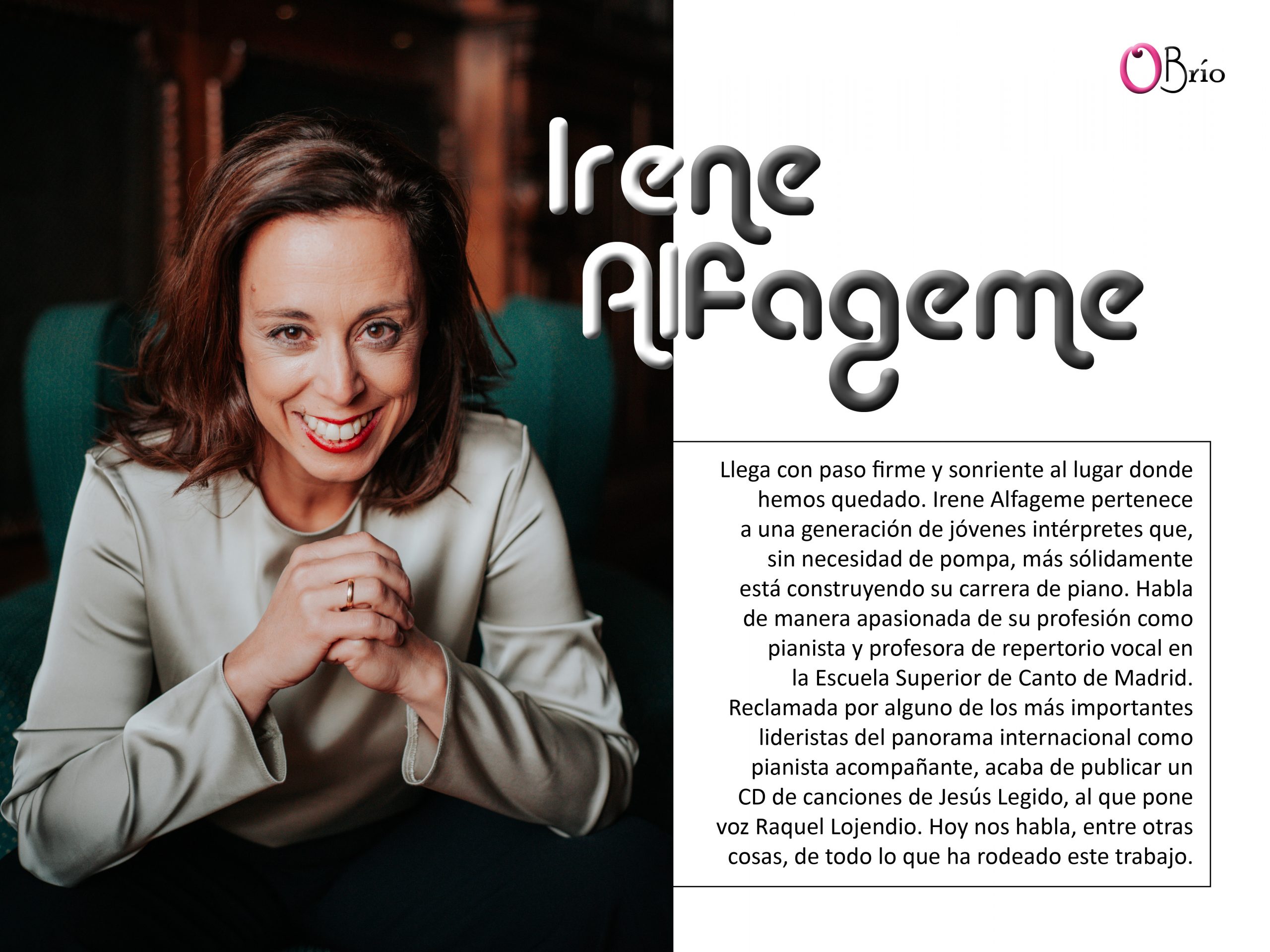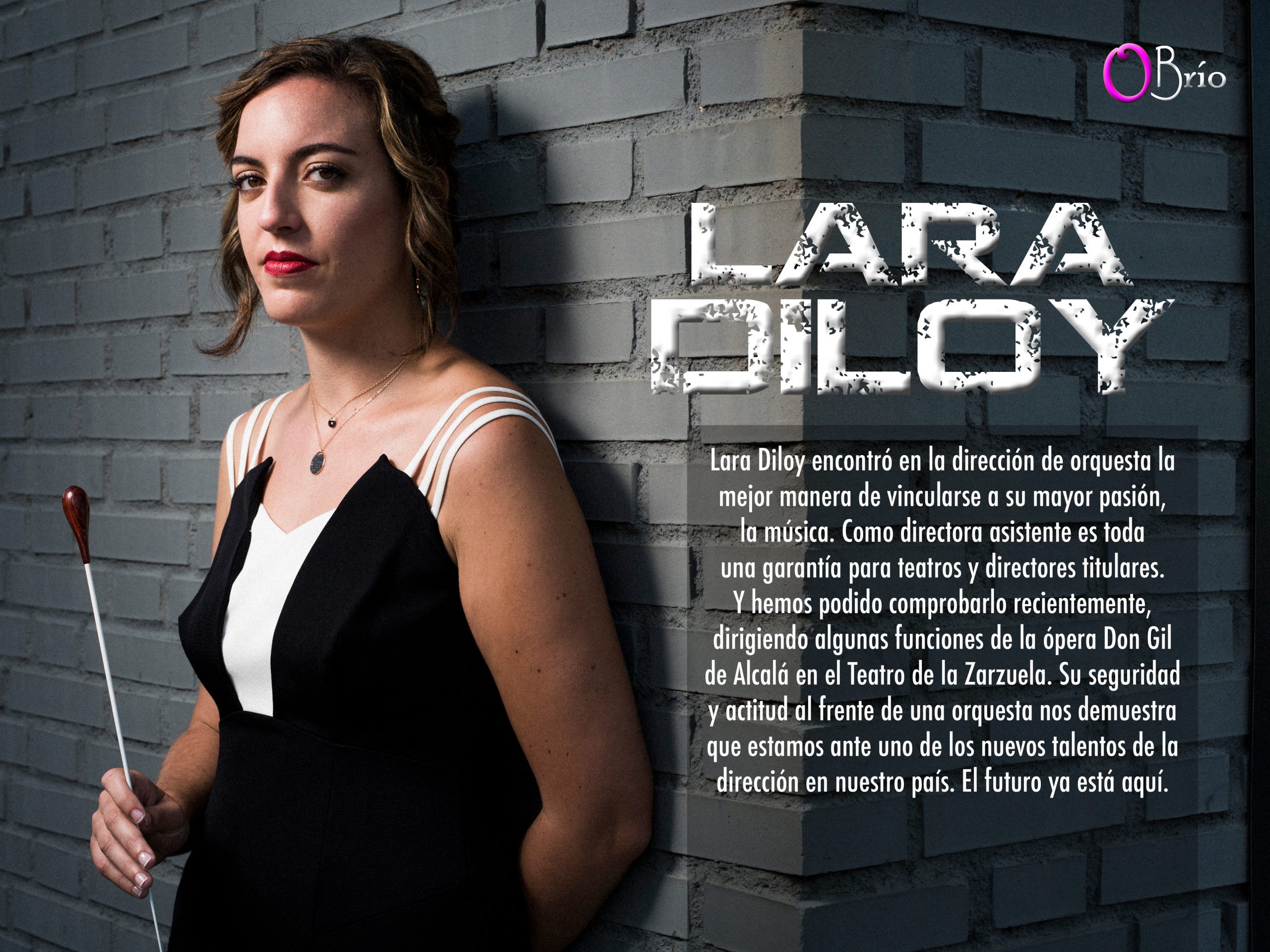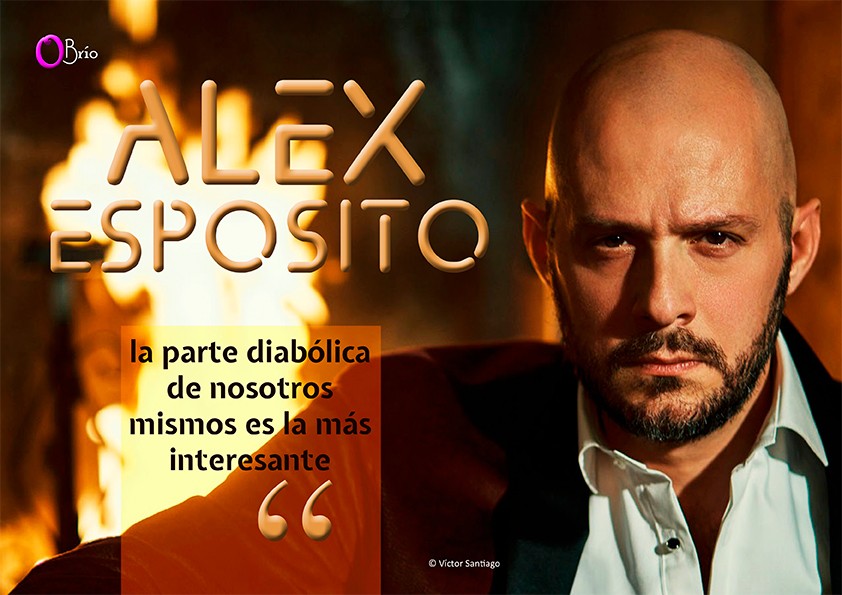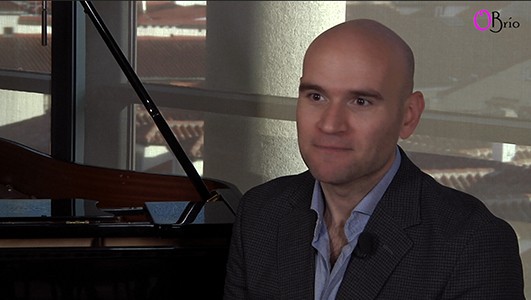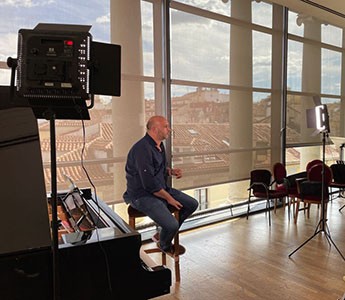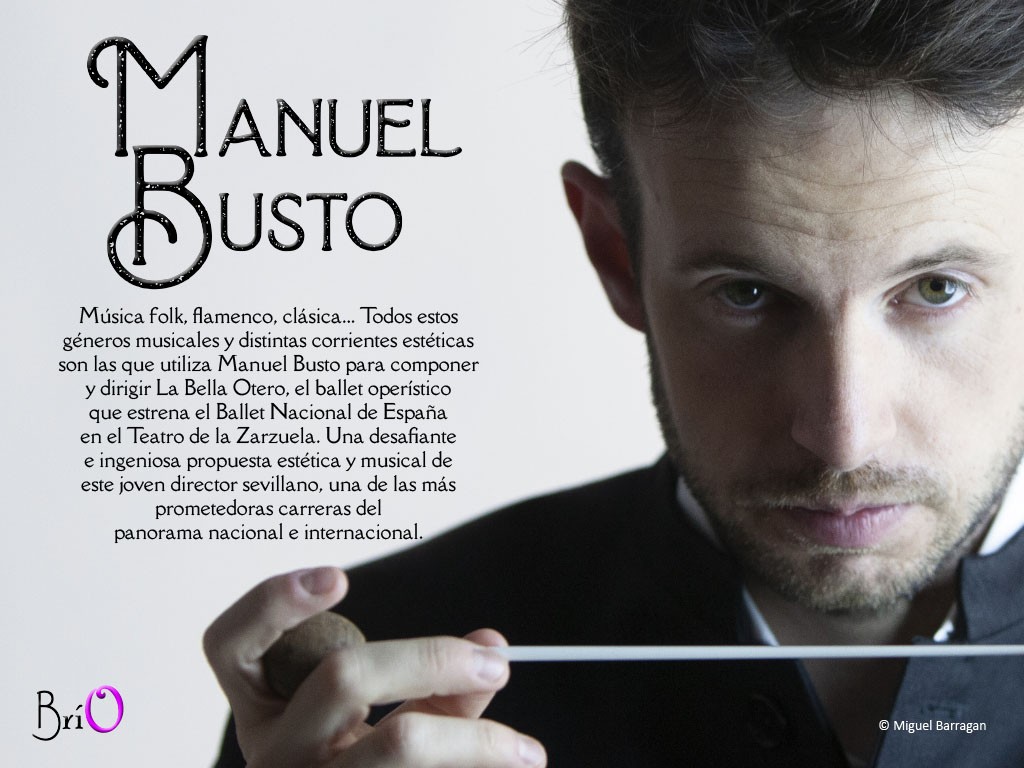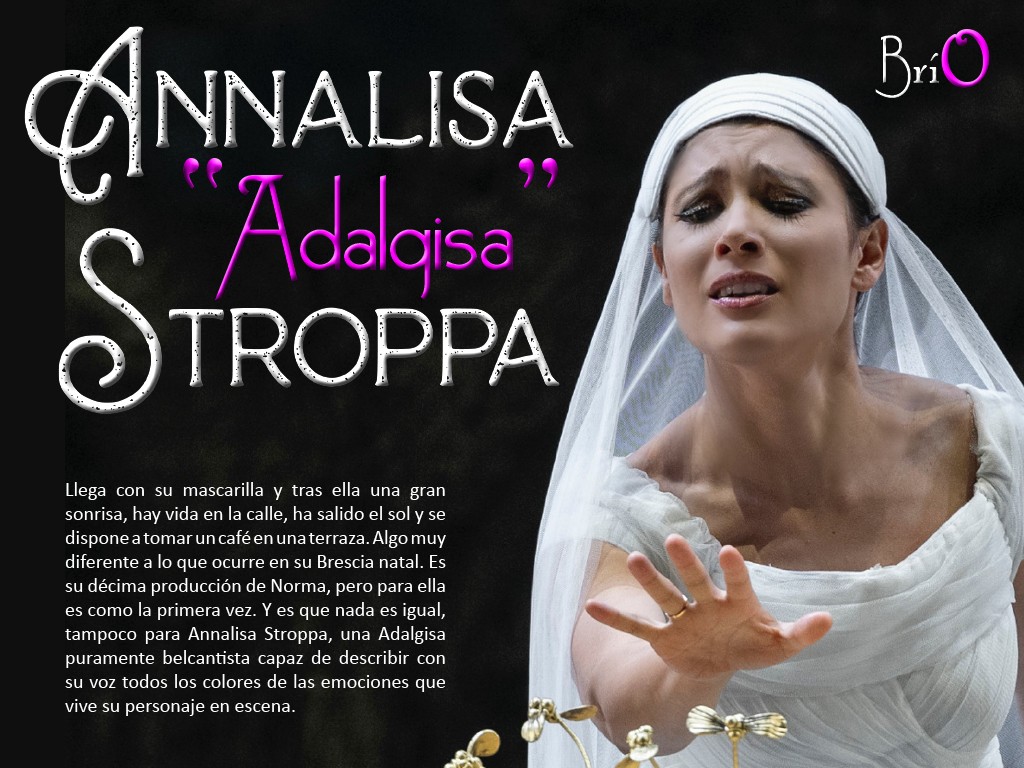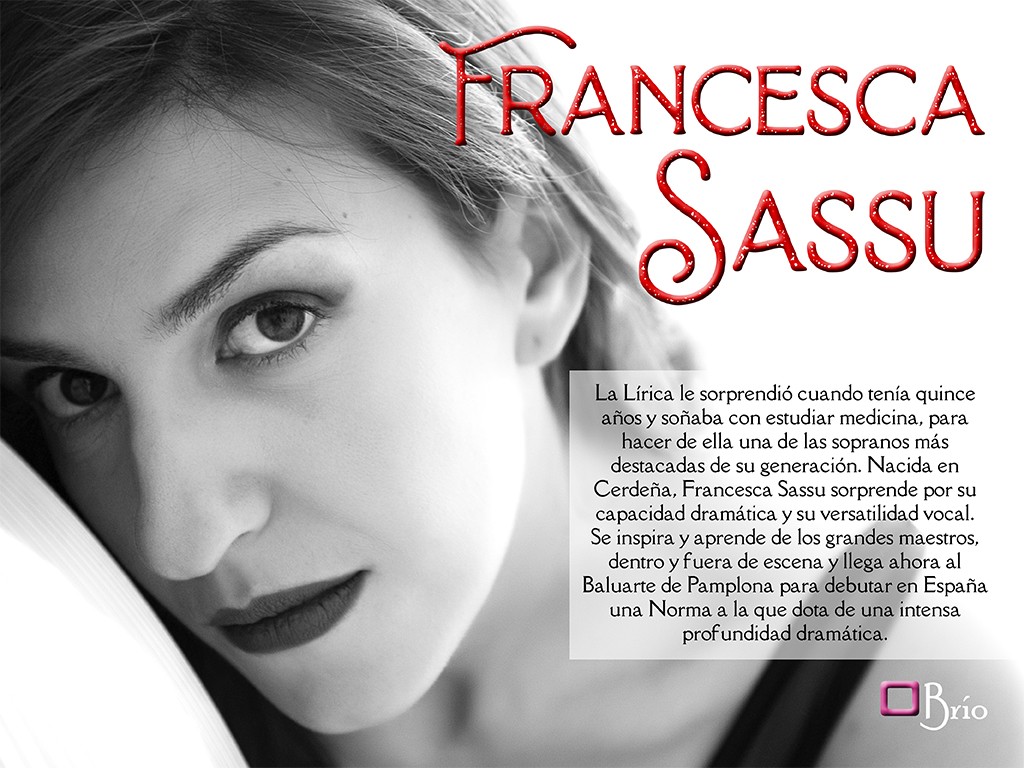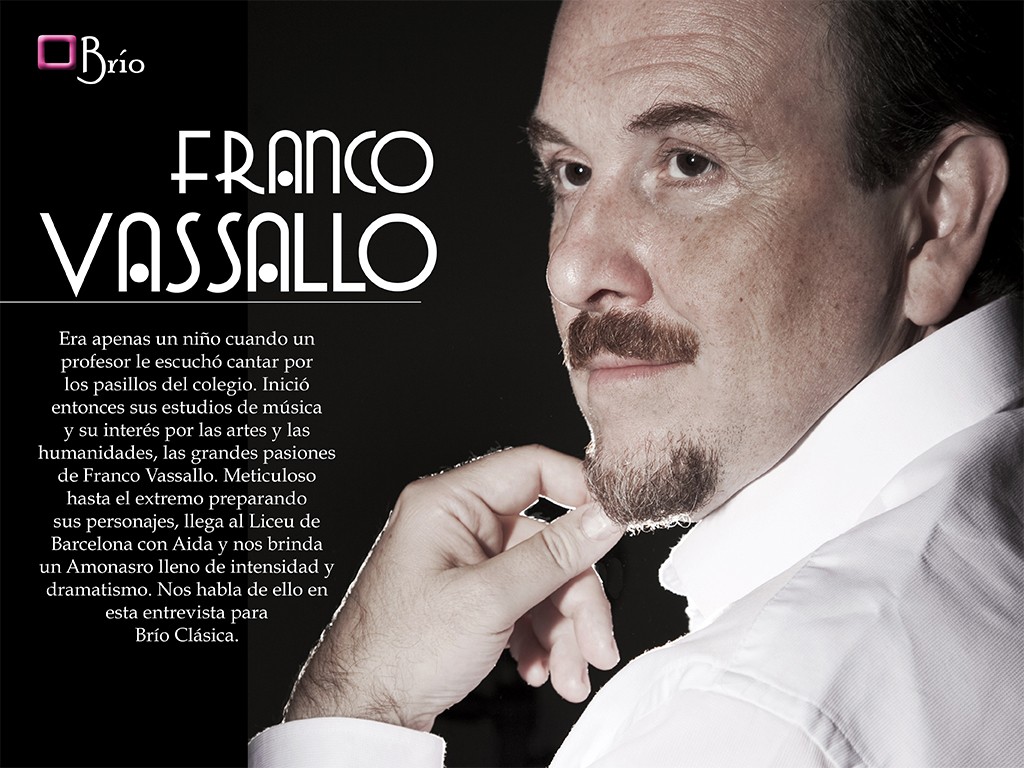Entrevista a John Axelrod, Director de la ROSS
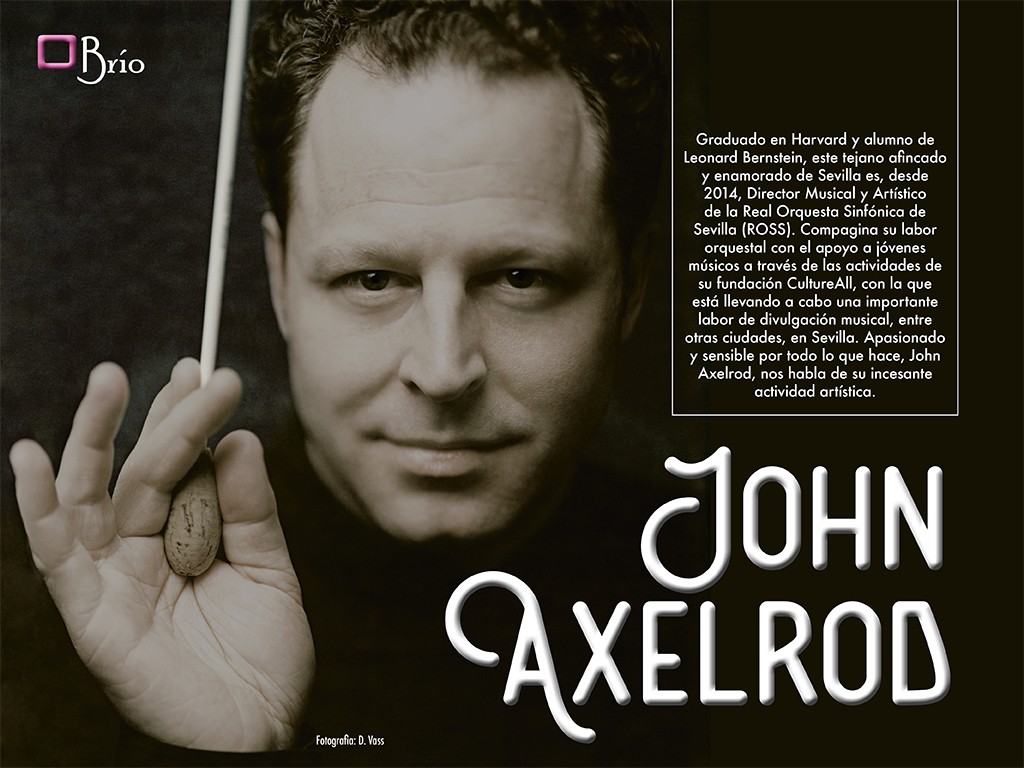

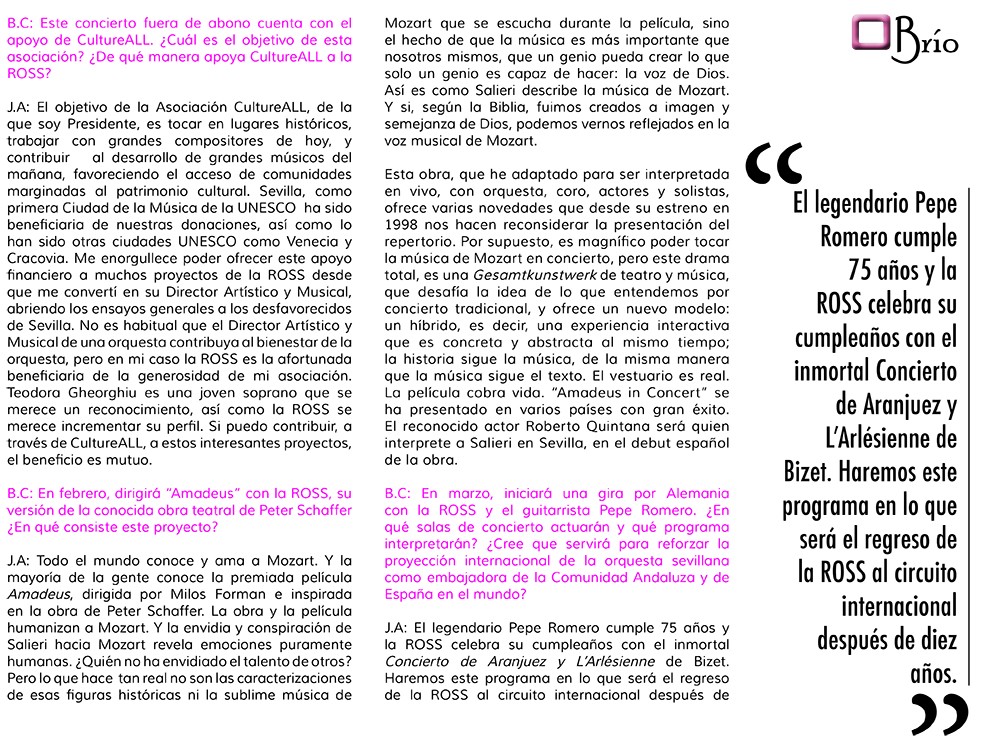
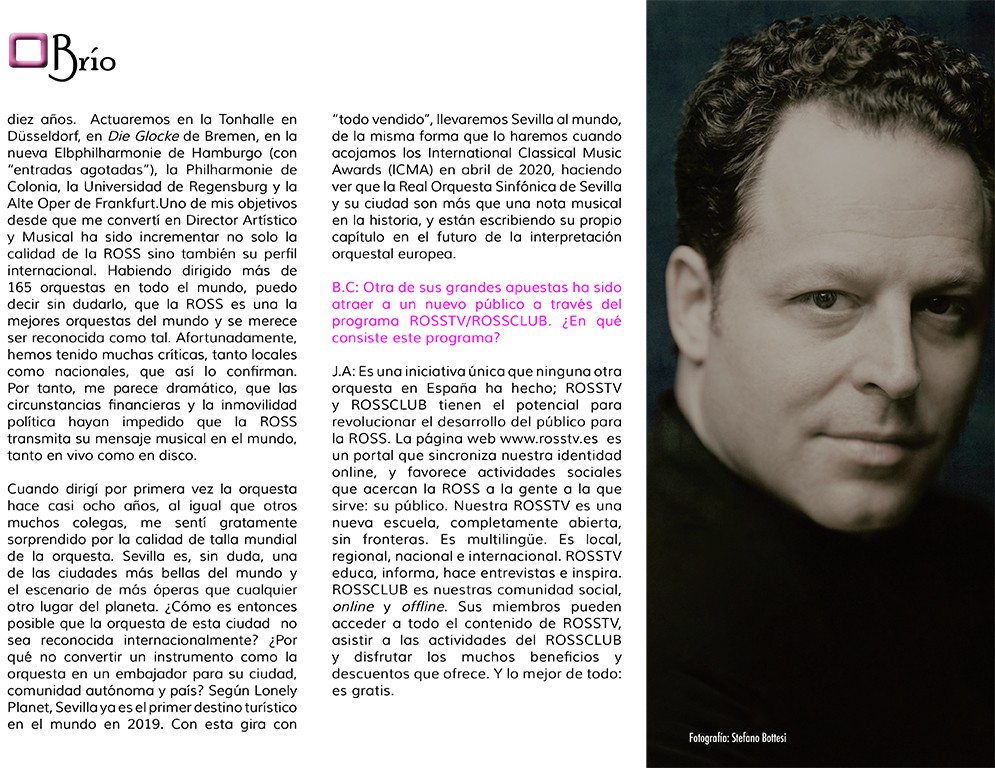
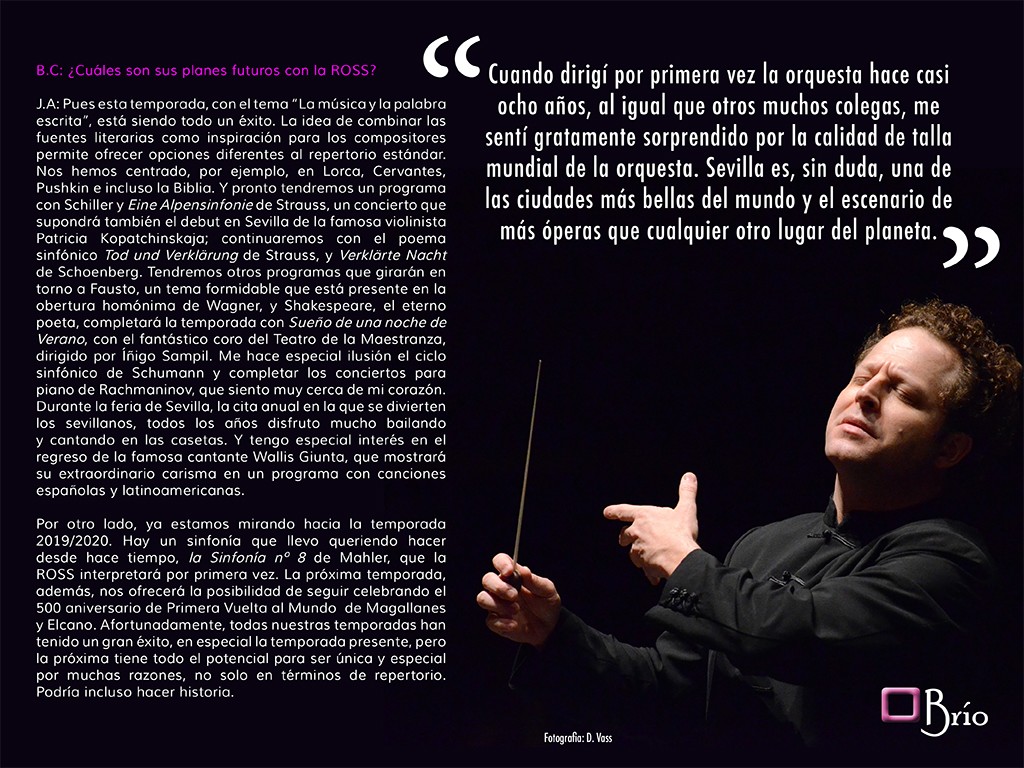
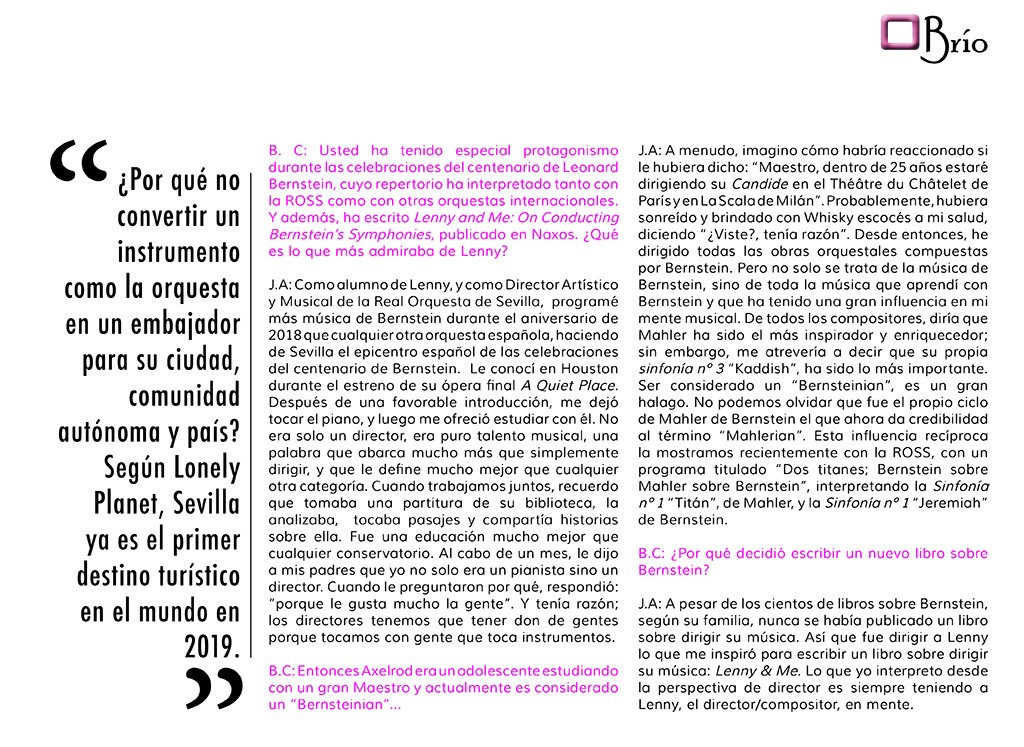
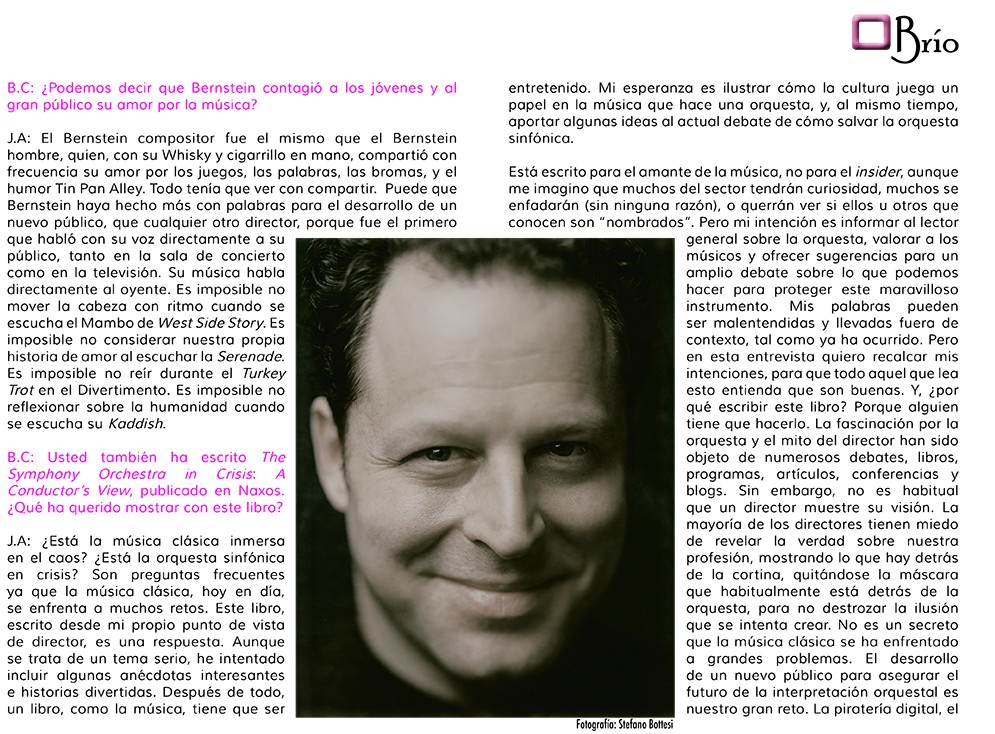
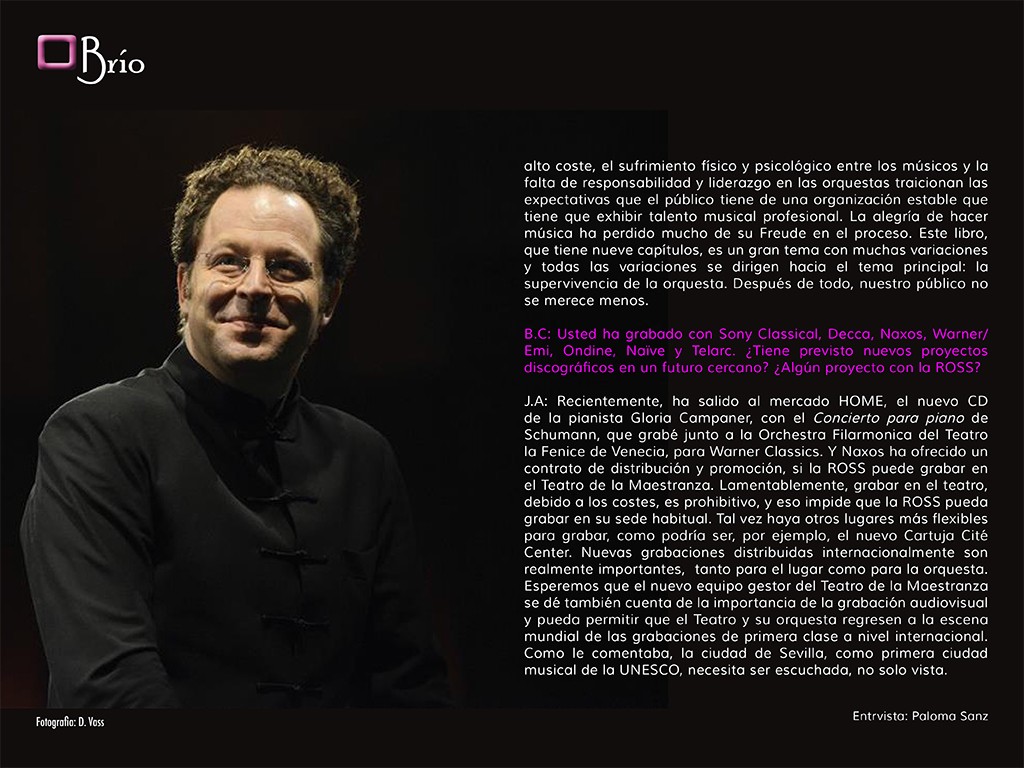
John AxelrodGraduado en Harvard y alumno de Leonard Bernstein, este tejano afincado y enamorado de Sevilla es, desde 2014, Director Musical y Artístico de la Real Orquesta Sinfónica de Sevilla (ROSS). Compagina su labor orquestal con el apoyo a jóvenes músicos a través de las actividades de su fundación CultureAll, con la que está llevando a cabo una importante labor de divulgación musical, entre otras ciudades, en Sevilla. Apasionado y sensible por todo lo que hace, John Axelrod, nos habla de su incesante actividad artística.
Brío Clásica: Los próximos días 4 y 5 de enero, dirigirá el “Concierto de Año Nuevo” con la Real Orquesta Sinfónica de Sevilla (ROSS) en el Teatro de la Maestranza junto a la soprano Teodora Gheorghiu. ¿Qué arias de ópera interpretarán?
John Axelrod: Serán arias muy conocidas de bel canto para soprano, elegidas por la propia Teodora Gheorghiu, que será la solista invitada del concierto y hace su debut en Sevilla. Descubrí a Teodora cuando era Director Musical en Lucerna, antes de convertirse en una destacada soprano de la Ópera Estatal de Viena. Hemos conseguido traer a magníficos cantantes para nuestros conciertos de Año Nuevo, así que me hace mucha ilusión poder dar la bienvenida en Sevilla a Teodora. Además de conocidas arias de las óperas Lastraniera, Lucrezia Borgia e Il pirata, la orquesta tocará también la Sinfonia de Il pirata, de Bellini, la obertura de La favorite de Donizetti, y la obertura de La Cenerentola de Rossini.
B.C: En la segunda parte del concierto, interpretarán también obras de Johann Strauss II, con las que quiere rendir un homenaje a la mujer.
J.A: Sí, así es. ¿Por qué un homenaje a la mujer? Simple y llanamente, porque el 2018 ha sido un año significativo para la voz de las mujeres, sin las cuales no existiríamos. Yo he sido nuevamente padre, así que también es un homenaje a mi mujer, al mismo tiempo que la ROSS y yo mostramos nuestro respeto y honramos a todas las mujeres del mundo. En realidad, todo el concierto es una celebración de la mujer, desde la diosa a la guerrera, la heroína, la femme fatale, la madonna… Strauss hijo también rindió tributo a las extraordinarias mujeres del imperio austro-húngaro. Ellas inspiraron el arte de Kokoschka, Klimt y Mucha… la música de Mahler y se convirtieron en musas de muchos otros hombres que encontraron su inspiración en la belleza y verdad del eterno femenino. Strauss nos ofrece buenos ejemplos de esto y estamos encantados de compartir estos bonbons musicales con nuestro fiel público.
B.C: Este concierto fuera de abono cuenta con el apoyo de CultureALL. ¿Cuál es el objetivo de esta asociación? ¿De qué manera apoya CultureALL a la ROSS?
J.A: El objetivo de la Asociación CultureALL, de la que soy Presidente, es tocar en lugares históricos, trabajar con grandes compositores de hoy, y contribuir al desarrollo de grandes músicos del mañana, favoreciendo el acceso de comunidades marginadas al patrimonio cultural. Sevilla, como primera Ciudad de la Música de la UNESCO ha sido beneficiaria de nuestras donaciones, así como lo han sido otras ciudades UNESCO como Venecia y Cracovia. Me enorgullece poder ofrecer este apoyo financiero a muchos proyectos de la ROSS desde que me convertí en su Director Artístico y Musical, abriendo los ensayos generales a los desfavorecidos de Sevilla. No es habitual que el Director Artístico y Musical de una orquesta contribuya al bienestar de la orquesta, pero en mi caso la ROSS es la afortunada beneficiaria de la generosidad de mi asociación. Teodora Gheorghiu es una joven soprano que se merece un reconocimiento, así como la ROSS se merece incrementar su perfil. Si puedo contribuir, a través de CultureALL, a estos interesantes proyectos, el beneficio es mutuo.
B.C: En febrero, dirigirá “Amadeus” con la ROSS, su versión de la conocida obra teatral de Peter Schaffer ¿En qué consiste este proyecto?
J.A: Todo el mundo conoce y ama a Mozart. Y la mayoría de la gente conoce la premiada película Amadeus, dirigida por Milos Forman e inspirada en la obra de Peter Schaffer. La obra y la película humanizan a Mozart. Y la envidia y conspiración de Salieri hacia Mozart revela emociones puramente humanas. ¿Quién no ha envidiado el talento de otros? Pero lo que hace tan real no son las caracterizaciones de esas figuras históricas ni la sublime música de Mozart que se escucha durante la película, sino el hecho de que la música es más importante que nosotros mismos, que un genio pueda crear lo que solo un genio es capaz de hacer: la voz de Dios. Así es como Salieri describe la música de Mozart. Y si, según la Biblia, fuimos creados a imagen y semejanza de Dios, podemos vernos reflejados en la voz musical de Mozart.
Esta obra, que he adaptado para ser interpretada en vivo, con orquesta, coro, actores y solistas, ofrece varias novedades que desde su estreno en 1998 nos hacen reconsiderar la presentación del repertorio. Por supuesto, es magnífico poder tocar la música de Mozart en concierto, pero este drama total, es una Gesamtkunstwerk de teatro y música, que desafía la idea de lo que entendemos por concierto tradicional, y ofrece un nuevo modelo: un híbrido, es decir, una experiencia interactiva que es concreta y abstracta al mismo tiempo; la historia sigue la música, de la misma manera que la música sigue el texto. El vestuario es real. La película cobra vida. “Amadeus in Concert” se ha presentado en varios países con gran éxito. El reconocido actor Roberto Quintana será quien interprete a Salieri en Sevilla, en el debut español de la obra.
B.C: En marzo, iniciará una gira por Alemania con la ROSS y el guitarrista Pepe Romero. ¿En qué salas de concierto actuarán y qué programa interpretarán? ¿Cree que servirá para reforzar la proyección internacional de la orquesta sevillana como embajadora de la Comunidad Andaluza y de España en el mundo?
J.A: El legendario Pepe Romero cumple 75 años y la ROSS celebra su cumpleaños con el inmortal Concierto de Aranjuez y L’Arlésienne de Bizet. Haremos este programa en lo que será el regreso de la ROSS al circuito internacional después de diez años. Actuaremos en la Tonhalle en Düsseldorf, en Die Glocke de Bremen, en la nueva Elbphilharmonie de Hamburgo (con “entradas agotadas”), la Philharmonie de Colonia, la Universidad de Regensburg y la Alte Oper de Frankfurt.Uno de mis objetivos desde que me convertí en Director Artístico y Musical ha sido incrementar no solo la calidad de la ROSS sino también su perfil internacional. Habiendo dirigido más de 165 orquestas en todo el mundo, puedo decir sin dudarlo, que la ROSS es una la mejores orquestas del mundo y se merece ser reconocida como tal. Afortunadamente, hemos tenido muchas críticas, tanto locales como nacionales, que así lo confirman. Por tanto, me parece dramático, que las circunstancias financieras y la inmovilidad política hayan impedido que la ROSS transmita su mensaje musical en el mundo, tanto en vivo como en disco.
Cuando dirigí por primera vez la orquesta hace casi ocho años, al igual que otros muchos colegas, me sentí gratamente sorprendido por la calidad de talla mundial de la orquesta. Sevilla es, sin duda, una de las ciudades más bellas del mundo y el escenario de más óperas que cualquier otro lugar del planeta. ¿Cómo es entonces posible que la orquesta de esta ciudad no sea reconocida internacionalmente? ¿Por qué no convertir un instrumento como la orquesta en un embajador para su ciudad, comunidad autónoma y país? Según Lonely Planet, Sevilla ya es el primer destino turístico en el mundo en 2019. Con esta gira con “todo vendido”, llevaremos Sevilla al mundo, de la misma forma que lo haremos cuando acojamos los International Classical Music Awards (ICMA) en abril de 2020, haciendo ver que la Real Orquesta Sinfónica de Sevilla y su ciudad son más que una nota musical en la historia, y están escribiendo su propio capítulo en el futuro de la interpretación orquestal europea.
B.C: Otra de sus grandes apuestas ha sido atraer a un nuevo público a través del programa ROSSTV/ROSSCLUB. ¿En qué consiste este programa?
J.A: Es una iniciativa única que ninguna otra orquesta en España ha hecho; ROSSTV y ROSSCLUB tienen el potencial para revolucionar el desarrollo del público para la ROSS. La página web www.rosstv.es es un portal que sincroniza nuestra identidad online, y favorece actividades sociales que acercan la ROSS a la gente a la que sirve: su público. Nuestra ROSSTV es una nueva escuela, completamente abierta, sin fronteras. Es multilingüe. Es local, regional, nacional e internacional. ROSSTV educa, informa, hace entrevistas e inspira. ROSSCLUB es nuestras comunidad social, online y offline. Sus miembros pueden acceder a todo el contenido de ROSSTV, asistir a las actividades del ROSSCLUB y disfrutar los muchos beneficios y descuentos que ofrece. Y lo mejor de todo: es gratis.
B.C: ¿Cuáles son sus planes futuros con la ROSS?
J.A: Pues esta temporada, con el tema “La música y la palabra escrita”, está siendo todo un éxito. La idea de combinar las fuentes literarias como inspiración para los compositores permite ofrecer opciones diferentes al repertorio estándar. Nos hemos centrado, por ejemplo, en Lorca, Cervantes, Pushkin e incluso la Biblia. Y pronto tendremos un programa con Schiller y Eine Alpensinfonie de Strauss, un concierto que supondrá también el debut en Sevilla de la famosa violinista Patricia Kopatchinskaja; continuaremos con el poema sinfónico Tod und Verklärung de Strauss, y Verklärte Nacht de Schoenberg. Tendremos otros programas que girarán en torno a Fausto, un tema formidable que está presente en la obertura homónima de Wagner, y Shakespeare, el eterno poeta, completará la temporada con Sueño de una noche de Verano, con el fantástico coro del Teatro de la Maestranza, dirigido por Íñigo Sampil. Me hace especial ilusión el ciclo sinfónico de Schumann y completar los conciertos para piano de Rachmaninov, que siento muy cerca de mi corazón. Durante la feria de Sevilla, la cita anual en la que se divierten los sevillanos, todos los años disfruto mucho bailando y cantando en las casetas. Y tengo especial interés en el regreso de la famosa cantante Wallis Giunta, que mostrará su extraordinario carisma en un programa con canciones españolas y latinoamericanas.
Por otro lado, ya estamos mirando hacia la temporada 2019/2020. Hay un sinfonía que llevo queriendo hacer desde hace tiempo, la Sinfonía nº 8 de Mahler, que la ROSS interpretará por primera vez. La próxima temporada, además, nos ofrecerá la posibilidad de seguir celebrando el 500 aniversario de Primera Vuelta al Mundo de Magallanes y Elcano. Afortunadamente, todas nuestras temporadas han tenido un gran éxito, en especial la temporada presente, pero la próxima tiene todo el potencial para ser única y especial por muchas razones, no solo en términos de repertorio. Podría incluso hacer historia.
B. C: Usted ha tenido especial protagonismo durante las celebraciones del centenario de Leonard Bernstein, cuyo repertorio ha interpretado tanto con la ROSS como con otras orquestas internacionales. Y además, ha escrito Lenny and Me: On Conducting Bernstein’s Symphonies, publicado en Naxos. ¿Qué es lo que más admiraba de Lenny?
J.A: Como alumno de Lenny, y como Director Artístico y Musical de la Real Orquesta de Sevilla, programé más música de Bernstein durante el aniversario de 2018 que cualquier otra orquesta española, haciendo de Sevilla el epicentro español de las celebraciones del centenario de Bernstein. Le conocí en Houston durante el estreno de su ópera final A Quiet Place. Después de una favorable introducción, me dejó tocar el piano, y luego me ofreció estudiar con él. No era solo un director, era puro talento musical, una palabra que abarca mucho más que simplemente dirigir, y que le define mucho mejor que cualquier otra categoría. Cuando trabajamos juntos, recuerdo que tomaba una partitura de su biblioteca, la analizaba, tocaba pasajes y compartía historias sobre ella. Fue una educación mucho mejor que cualquier conservatorio. Al cabo de un mes, le dijo a mis padres que yo no solo era un pianista sino un director. Cuando le preguntaron por qué, respondió: “porque le gusta mucho la gente”. Y tenía razón; los directores tenemos que tener don de gentes porque tocamos con gente que toca instrumentos.
B.C: Entonces Axelrod era un adolescente estudiando con un gran Maestro y actualmente es considerado un “Bernsteinian”…
J.A: A menudo, imagino cómo habría reaccionado si le hubiera dicho: “Maestro, dentro de 25 años estaré dirigiendo su Candide en el Théâtre du Châtelet de París y en La Scala de Milán”. Probablemente, hubiera sonreído y brindado con Whisky escocés a mi salud, diciendo “¿Viste?, tenía razón”. Desde entonces, he dirigido todas las obras orquestales compuestas por Bernstein. Pero no solo se trata de la música de Bernstein, sino de toda la música que aprendí con Bernstein y que ha tenido una gran influencia en mi mente musical. De todos los compositores, diría que Mahler ha sido el más inspirador y enriquecedor; sin embargo, me atrevería a decir que su propia sinfonía nº 3 “Kaddish”, ha sido lo más importante. Ser considerado un “Bernsteinian”, es un gran halago. No podemos olvidar que fue el propio ciclo de Mahler de Bernstein el que ahora da credibilidad al término “Mahlerian”. Esta influencia recíproca la mostramos recientemente con la ROSS, con un programa titulado “Dos titanes; Bernstein sobre Mahler sobre Bernstein”, interpretando la Sinfonía nº 1 “Titán”, de Mahler, y la Sinfonía nº 1 “Jeremiah” de Bernstein.
B.C: ¿Por qué decidió escribir un nuevo libro sobre Bernstein?
J.A: A pesar de los cientos de libros sobre Bernstein, según su familia, nunca se había publicado un libro sobre dirigir su música. Así que fue dirigir a Lenny lo que me inspiró para escribir un libro sobre dirigir su música: Lenny & Me. Lo que yo interpreto desde la perspectiva de director es siempre teniendo a Lenny, el director/compositor, en mente.
B.C: ¿Podemos decir que Bernstein contagió a los jóvenes y al gran público su amor por la música?
J.A: El Bernstein compositor fue el mismo que el Bernstein hombre, quien, con su Whisky y cigarrillo en mano, compartió con frecuencia su amor por los juegos, las palabras, las bromas, y el humor Tin Pan Alley. Todo tenía que ver con compartir. Puede que Bernstein haya hecho más con palabras para el desarrollo de un nuevo público, que cualquier otro director, porque fue el primero que habló con su voz directamente a su público, tanto en la sala de concierto como en la televisión. Su música habla directamente al oyente. Es imposible no mover la cabeza con ritmo cuando se escucha el Mambo de West Side Story. Es imposible no considerar nuestra propia historia de amor al escuchar la Serenade. Es imposible no reír durante el Turkey Trot en el Divertimento. Es imposible no reflexionar sobre la humanidad cuando se escucha su Kaddish.
B.C: Usted también ha escrito The Symphony Orchestra in Crisis: A Conductor’s View, publicado en Naxos. ¿Qué ha querido mostrar con este libro?
J.A: ¿Está la música clásica inmersa en el caos? ¿Está la orquesta sinfónica en crisis? Son preguntas frecuentes ya que la música clásica, hoy en día, se enfrenta a muchos retos. Este libro, escrito desde mi propio punto de vista de director, es una respuesta. Aunque se trata de un tema serio, he intentado incluir algunas anécdotas interesantes e historias divertidas. Después de todo, un libro, como la música, tiene que ser entretenido. Mi esperanza es ilustrar cómo la cultura juega un papel en la música que hace una orquesta, y, al mismo tiempo, aportar algunas ideas al actual debate de cómo salvar la orquesta sinfónica.
Está escrito para el amante de la música, no para el insider, aunque me imagino que muchos del sector tendrán curiosidad, muchos se enfadarán (sin ninguna razón), o querrán ver si ellos u otros que conocen son “nombrados”. Pero mi intención es informar al lector general sobre la orquesta, valorar a los músicos y ofrecer sugerencias para un amplio debate sobre lo que podemos hacer para proteger este maravilloso instrumento. Mis palabras pueden ser malentendidas y llevadas fuera de contexto, tal como ya ha ocurrido. Pero en esta entrevista quiero recalcar mis intenciones, para que todo aquel que lea esto entienda que son buenas. Y, ¿por qué escribir este libro? Porque alguien tiene que hacerlo. La fascinación por la orquesta y el mito del director han sido objeto de numerosos debates, libros, programas, artículos, conferencias y blogs. Sin embargo, no es habitual que un director muestre su visión. La mayoría de los directores tienen miedo de revelar la verdad sobre nuestra profesión, mostrando lo que hay detrás de la cortina, quitándose la máscara que habitualmente está detrás de la orquesta, para no destrozar la ilusión que se intenta crear. No es un secreto que la música clásica se ha enfrentado a grandes problemas. El desarrollo de un nuevo público para asegurar el futuro de la interpretación orquestal es nuestro gran reto. La piratería digital, el alto coste, el sufrimiento físico y psicológico entre los músicos y la falta de responsabilidad y liderazgo en las orquestas traicionan las expectativas que el público tiene de una organización estable que tiene que exhibir talento musical profesional. La alegría de hacer música ha perdido mucho de su Freude en el proceso. Este libro, que tiene nueve capítulos, es un gran tema con muchas variaciones y todas las variaciones se dirigen hacia el tema principal: la supervivencia de la orquesta. Después de todo, nuestro público no se merece menos.
B.C: Usted ha grabado con Sony Classical, Decca, Naxos, Warner/Emi, Ondine, Naïve y Telarc. ¿Tiene previsto nuevos proyectos discográficos en un futuro cercano? ¿Algún proyecto con la ROSS?
J.A: Recientemente, ha salido al mercado HOME, el nuevo CD de la pianista Gloria Campaner, con el Concierto para piano de Schumann, que grabé junto a la Orchestra Filarmonica del Teatro la Fenice de Venecia, para Warner Classics. Y Naxos ha ofrecido un contrato de distribución y promoción, si la ROSS puede grabar en el Teatro de la Maestranza. Lamentablemente, grabar en el teatro, debido a los costes, es prohibitivo, y eso impide que la ROSS pueda grabar en su sede habitual. Tal vez haya otros lugares más flexibles para grabar, como podría ser, por ejemplo, el nuevo Cartuja Cité Center. Nuevas grabaciones distribuidas internacionalmente son realmente importantes, tanto para el lugar como para la orquesta. Esperemos que el nuevo equipo gestor del Teatro de la Maestranza se dé también cuenta de la importancia de la grabación audiovisual y pueda permitir que el Teatro y su orquesta regresen a la escena mundial de las grabaciones de primera clase a nivel internacional. Como le comentaba, la ciudad de Sevilla, como primera ciudad musical de la UNESCO, necesita ser escuchada, no solo vista.
Entrvista: Paloma Sanz

